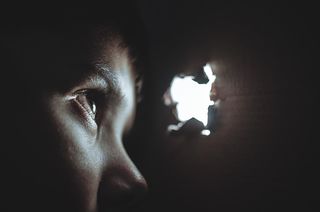Loneliness
Building Community and Overcoming Loneliness
What we can do to combat loneliness and build hope, trust, and community.
Posted September 22, 2019
Human beings are not solitary creatures. We live in families and communities. More often than not, we care for one another without reward or selfish motives. Our individual encounters with others, shapes who we become. It is our relationships that have the strongest effect on our happiness and satisfaction with life. It is the bond that forms healthy communities. When we nurture our connections and friendships, we are also caring for ourselves in the deepest and most primal ways. Our need to belong is fundamental.

And yet, we are suffering from a crisis in loneliness. Increasing numbers of family and friends report feeling isolated. We have fewer people with whom we can discuss the important things in our lives. We don’t know our neighbors. We do not share meals with one another. Suicide rates are at a 30-year high. Civil, open dialogue on issues essential to the health of our nation and neighborhoods has vanished. Every year, fifty thousand people die of opiate addiction.
The enormity of the issue can be disheartening and make us feel helpless. However, we do not have to solve it all at once. There are simple things each one of us can do today, to connect once again and begin to build tight, nurturant bonds; things we can do to start rebuilding a sense of hope and trust in one another and start to heal our community. Your friends and neighbors and loved ones need you. Here are just a few things you can do:
- Break Bread Together. Once a week (yes, every week!), invite friends and neighbors over for brunch or dinner. One of the best ways to bond is by sharing a meal.
- Join. There are innumerable communities of interest around you. There are activities and social events at the local church and temple and mosque. “Meetup” groups get together around books, politics, podcasts, Star Trek, Latin dance, pessimism, and even nude hiking. Pick one. Or start your own around something meaningful to you. When you go, you will not connect with everyone. But by getting together with others with similar interests or passions, you will be more likely to find a common connection. Have fun and let things grow from there.
- Expand Your Circle. Often the things that hold communities together, exclude others. Yet our lives are richer, more informed and complete when finding the shared humanity in those with different views and experiences. Take five or ten minutes and make a list of the people in your various circles. How many are of a different social class, age or racial group? How many offer different political opinions or other perspectives on the world? Who else can you invite into your circle? We are all struggling with the same questions in life. Look for what you have in common. Look for the shared concerns. Your life will be richer for it.

Earlier this year, strategies were shared for building nurturant friendships here and here. Over the next few months, check back for more simple, practical steps for building relationships and community: for Fostering Forgiveness, Nurturing Love, and Injecting More Kindness into the World.
These are just a few ideas excerpted from the Happiness Field Manual. Some will have a stronger effect than others. Some will last longer. Not every exercise will work for every person, all the time. There are also complexities and subtleties to each that are not addressed in this short post. The complete Happiness Field Manual is available for free here.
There are things we can do to help one another overcome loneliness. It is not easy, or quick, but we can build rich, nurturant lives full of love, joy, mutual respect, and honest connection.
© 2019, John Albert Doyle, Jr.
References
Doyle, J. Sean (2018) The Happiness Field Manual. Raleigh, NC. Rainstick Press. Available for free for a limited time at www.JohnSeanDoyle.com.


